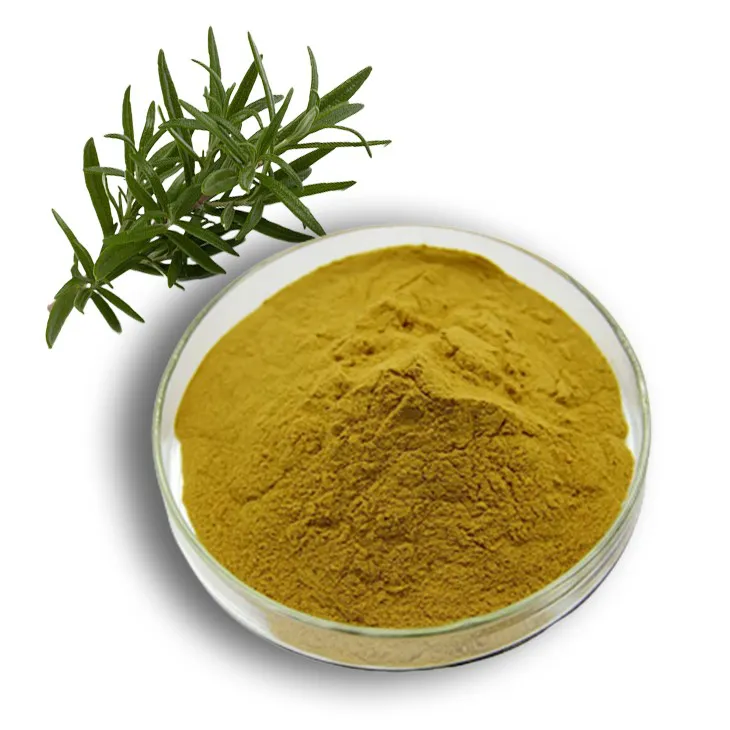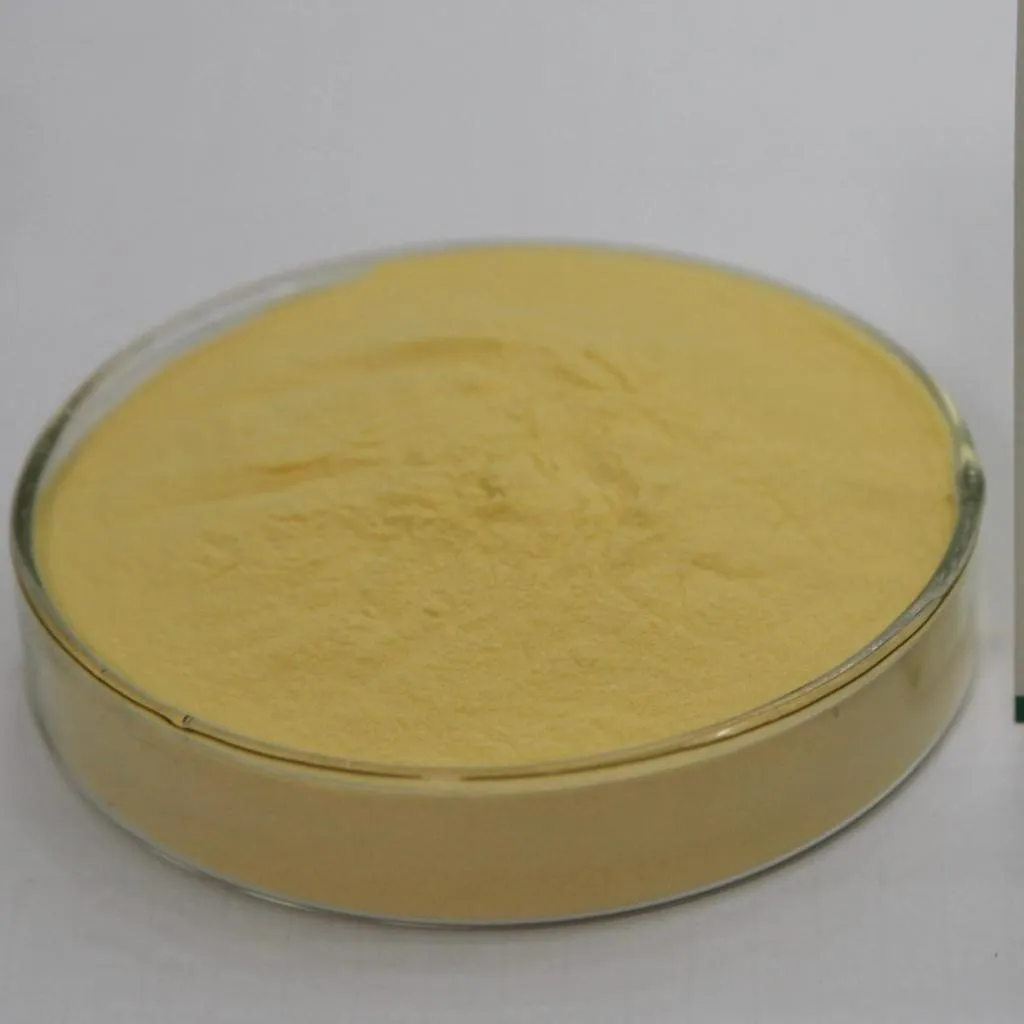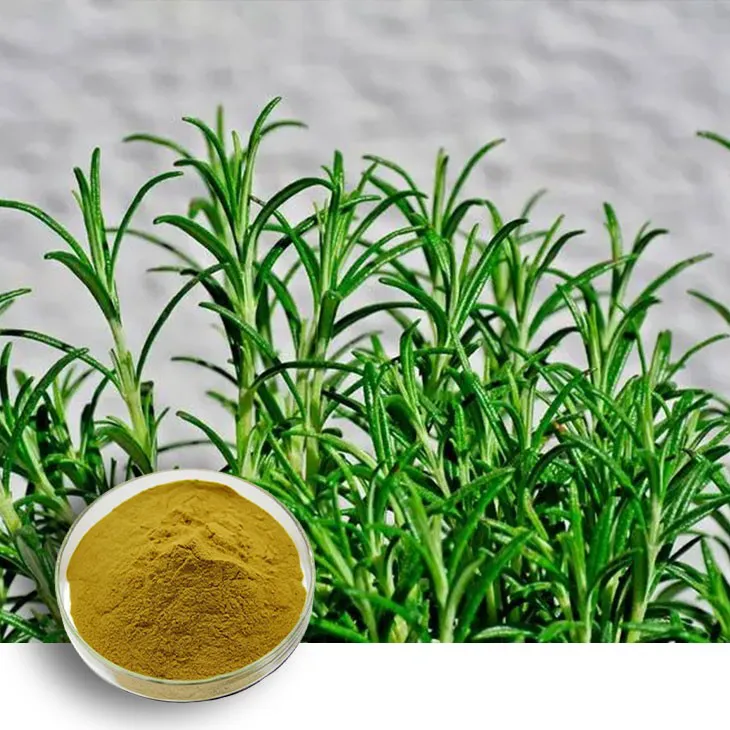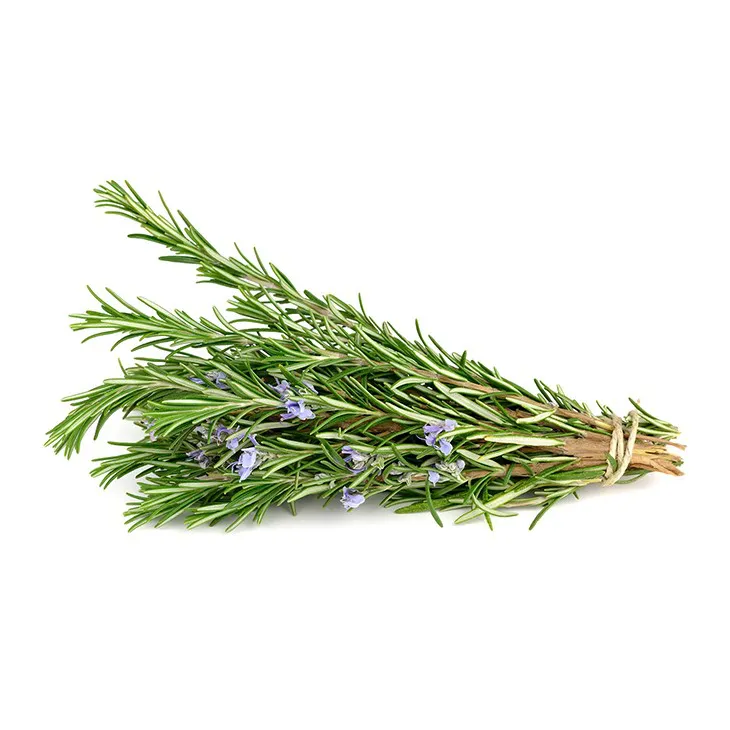- 0086-571-85302990
- sales@greenskybio.com
Benefits of Rosemary Extract in Cattle Feed.
2024-11-12

1. Introduction
In the realm of cattle farming, the quality of feed plays a pivotal role in the overall health, growth, and productivity of the cattle. Rosemary extract, which is derived from the rosemary plant (Rosmarinus officinalis), has emerged as a valuable component in cattle feed. This article delves into the various benefits that Rosemary extract offers when incorporated into cattle feed.

2. Rosemary extract as a Natural Antimicrobial Agent
2.1 Antimicrobial Properties Rosemary extract contains several bioactive compounds such as rosmarinic acid, carnosic acid, and carnosol. These compounds are known for their antimicrobial properties. In cattle, infections can lead to a range of problems including reduced growth rates, poor milk production in dairy cows, and even mortality in severe cases.
2.2 Reducing the Risk of Infections - When added to cattle feed, rosemary extract can help combat various pathogens. For example, it has been shown to be effective against bacteria such as Escherichia coli and Salmonella species. These bacteria are common causes of gastrointestinal infections in cattle. By reducing the load of these harmful bacteria in the gut, the risk of digestive disorders and associated systemic infections is decreased. - Fungal infections are also a concern in cattle, especially in humid and warm environments. Rosemary extract has demonstrated antifungal activity against certain fungi that can infect cattle, such as Aspergillus species. This helps in maintaining the health of the cattle's respiratory and digestive systems, which are common sites of fungal infections.

3. Aid in Nutrient Absorption
3.1 Importance of Nutrient Absorption for Cattle Growth Cattle require a balanced intake of nutrients such as proteins, carbohydrates, fats, vitamins, and minerals for optimal growth. However, simply providing these nutrients in the feed is not enough. Efficient absorption of these nutrients from the digestive tract is crucial.
3.2 How Rosemary Extract Facilitates Nutrient Absorption - Rosemary extract can improve the function of the digestive system. It has been observed to enhance the activity of digestive enzymes. For instance, it may increase the activity of proteases that break down proteins, amylases for carbohydrate digestion, and lipases for fat digestion. This enhanced enzymatic activity leads to better breakdown of feed components into smaller, more absorbable units. - Additionally, rosemary extract can have a positive impact on the gut microbiota. A healthy gut microbiota is essential for proper nutrient absorption. The extract may promote the growth of beneficial bacteria in the gut, which in turn can aid in the fermentation of feed components and the synthesis of certain vitamins and other nutrients that are beneficial for the cattle.

4. Impact on Dairy Product Flavor
4.1 Significance of Flavor in Dairy Products In the dairy industry, the flavor of products such as milk, cheese, and butter is of great importance. Consumers are highly sensitive to the taste and aroma of dairy products, and any off - flavors can lead to a decrease in product acceptance and marketability.
4.2 The Role of Rosemary Extract in Dairy Cattle Feed - When rosemary extract is included in the feed of dairy cows, it can potentially influence the flavor of the milk produced. Some studies suggest that certain compounds in the rosemary extract can be transferred into the milk in trace amounts. These compounds may impart a unique, pleasant flavor to the milk. - In the case of cheese production, the flavor profile of the cheese can also be affected. The presence of rosemary - related compounds in the milk used for cheese making can contribute to the development of more complex and desirable flavor characteristics. This could potentially lead to the creation of specialty cheeses with a distinct rosemary - influenced flavor.

5. Other Potential Benefits
5.1 Antioxidant Activity - Rosemary extract is rich in antioxidants. These antioxidants can help protect the cells of cattle from oxidative damage. Oxidative stress can occur due to various factors such as exposure to environmental pollutants, certain diseases, or high - energy diets. By reducing oxidative stress, the overall health and well - being of the cattle can be improved. - In dairy cows, antioxidant protection may also have implications for milk quality. Oxidative processes in milk can lead to a decrease in the shelf - life of dairy products and the development of off - flavors. The antioxidant activity of rosemary extract in the cow's body may help prevent these negative effects on milk.
5.2 Anti - Inflammatory Effects - Inflammation in cattle can be caused by infections, injuries, or other stressors. Rosemary extract has shown anti - inflammatory properties. The bioactive compounds in the extract can modulate the inflammatory response in the body. - For example, in cases of joint inflammation or respiratory tract inflammation in cattle, the anti - inflammatory effects of rosemary extract may help reduce pain, swelling, and improve the recovery process. This can contribute to better overall performance and reduced losses due to illness - related inactivity.
6. Considerations for Incorporating Rosemary Extract in Cattle Feed
6.1 Dosage - Determining the appropriate dosage of rosemary extract in cattle feed is crucial. Too low a dosage may not provide the desired benefits, while an excessive dosage could potentially have negative effects. Research is still ongoing to establish the optimal dosage for different types of cattle (beef cattle, dairy cows, etc.) and different production stages. - In general, it is important to follow the guidelines provided by feed manufacturers or based on scientific studies. For example, initial studies suggest that a dosage range of [X] grams per kilogram of feed may be effective for certain benefits, but this may need to be adjusted based on factors such as the age, weight, and health status of the cattle.
6.2 Compatibility with Other Feed Components - Cattle feed typically consists of a complex mixture of ingredients. It is necessary to ensure that rosemary extract is compatible with other components in the feed. Some feed ingredients may interact with the rosemary extract, either enhancing or reducing its effectiveness. - For example, certain minerals or vitamins in the feed may form complexes with the compounds in rosemary extract, which could affect their bioavailability. Therefore, formulation of feed with rosemary extract should be carefully designed to optimize the overall nutritional and functional value of the feed.
7. Conclusion
Rosemary extract offers a range of benefits when used in cattle feed. Its role as a natural antimicrobial agent helps in reducing the risk of infections, which is vital for the health and productivity of cattle. The aid in nutrient absorption is crucial for promoting growth, especially in beef cattle. In dairy cattle, the potential impact on dairy product flavor can enhance the marketability of dairy products. Additionally, other potential benefits such as antioxidant and anti - inflammatory effects further contribute to the overall well - being of the cattle. However, careful consideration of dosage and compatibility with other feed components is necessary to fully realize the benefits of rosemary extract in cattle feed. As research continues, more insights into the optimal use of rosemary extract in cattle farming are likely to emerge, further enhancing the role of this natural extract in the livestock industry.
FAQ:
1. How does rosemary extract act as a natural antimicrobial agent in cattle feed?
Rosemary extract contains certain compounds such as rosmarinic acid. These compounds have antimicrobial properties that can inhibit the growth of harmful bacteria, fungi, and other pathogens in the cattle's digestive system. This helps to create a healthier gut environment for the cattle, reducing the risk of infections.
2. Why is nutrient absorption important for cattle growth?
Nutrients are essential for various physiological processes in cattle. Adequate nutrient absorption ensures that the cattle get the necessary energy, proteins, vitamins, and minerals. This enables proper development of muscles, bones, and other tissues, supports the immune system, and promotes overall growth and productivity.
3. Can rosemary extract in cattle feed affect the quality of dairy products?
Yes, it can potentially affect the flavor of dairy products when used in dairy cattle feed. The compounds in rosemary extract may be transferred in small amounts to the milk, which can impart a unique flavor to the dairy products. However, this effect is usually subtle and in some cases may even be desirable, depending on consumer preferences.
4. How much rosemary extract should be added to cattle feed?
The optimal amount of rosemary extract to be added to cattle feed can vary depending on factors such as the age, weight, and health status of the cattle, as well as the composition of the rest of the feed. Generally, it is recommended to follow the guidelines provided by veterinarians or animal nutritionists. They will take into account all relevant factors to determine the appropriate dosage to achieve the desired benefits without causing any negative impacts.
5. Are there any potential side effects of using rosemary extract in cattle feed?
When used in appropriate amounts, rosemary extract is generally considered safe for cattle. However, if over - dosed, it may cause some digestive disturbances or allergic reactions in rare cases. It is important to monitor the cattle's response when introducing rosemary extract to the feed and adjust the dosage if any adverse effects are observed.
Related literature
- The Role of Rosemary Extract in Animal Nutrition"
- "Beneficial Effects of Rosemary Extract on Cattle Health and Productivity"
- "Rosemary Extract: A Natural Additive in Livestock Feed"
TAGS:
3. Can rosemary extract in cattle feed affect the quality of dairy products?
Yes, it can potentially affect the flavor of dairy products when used in dairy cattle feed. The compounds in rosemary extract may be transferred in small amounts to the milk, which can impart a unique flavor to the dairy products. However, this effect is usually subtle and in some cases may even be desirable, depending on consumer preferences.
4. How much rosemary extract should be added to cattle feed?
The optimal amount of rosemary extract to be added to cattle feed can vary depending on factors such as the age, weight, and health status of the cattle, as well as the composition of the rest of the feed. Generally, it is recommended to follow the guidelines provided by veterinarians or animal nutritionists. They will take into account all relevant factors to determine the appropriate dosage to achieve the desired benefits without causing any negative impacts.
5. Are there any potential side effects of using rosemary extract in cattle feed?
When used in appropriate amounts, rosemary extract is generally considered safe for cattle. However, if over - dosed, it may cause some digestive disturbances or allergic reactions in rare cases. It is important to monitor the cattle's response when introducing rosemary extract to the feed and adjust the dosage if any adverse effects are observed.
Related literature
- The Role of Rosemary Extract in Animal Nutrition"
- "Beneficial Effects of Rosemary Extract on Cattle Health and Productivity"
- "Rosemary Extract: A Natural Additive in Livestock Feed"
TAGS:
5. Are there any potential side effects of using rosemary extract in cattle feed?
When used in appropriate amounts, rosemary extract is generally considered safe for cattle. However, if over - dosed, it may cause some digestive disturbances or allergic reactions in rare cases. It is important to monitor the cattle's response when introducing rosemary extract to the feed and adjust the dosage if any adverse effects are observed.
Related literature
- The Role of Rosemary Extract in Animal Nutrition"
- "Beneficial Effects of Rosemary Extract on Cattle Health and Productivity"
- "Rosemary Extract: A Natural Additive in Livestock Feed"
TAGS:
- ▶ Hesperidin
- ▶ citrus bioflavonoids
- ▶ plant extract
- ▶ lycopene
- ▶ Diosmin
- ▶ Grape seed extract
- ▶ Sea buckthorn Juice Powder
- ▶ Beetroot powder
- ▶ Hops Extract
- ▶ Artichoke Extract
- ▶ Reishi mushroom extract
- ▶ Astaxanthin
- ▶ Green Tea Extract
- ▶ Curcumin Extract
- ▶ Horse Chestnut Extract
- ▶ Other Problems
- ▶ Boswellia Serrata Extract
- ▶ Resveratrol Extract
- ▶ Marigold Extract
- ▶ Grape Leaf Extract
- ▶ blog3
-
Cranberry Plants and Skin - care Products.
2024-11-12
-
Giant Knotweed Extract
2024-11-12
-
Nettle Root Extract
2024-11-12
-
Shikone Extract
2024-11-12
-
Red Vine Extract
2024-11-12
-
Maitake Mushroom Extract
2024-11-12
-
Europen Bilberry Extract
2024-11-12
-
Artichoke Extract
2024-11-12
-
Sea buckthorn Juice Powder
2024-11-12
-
Cocoa Extract
2024-11-12
-
Motherwort Extract
2024-11-12





















